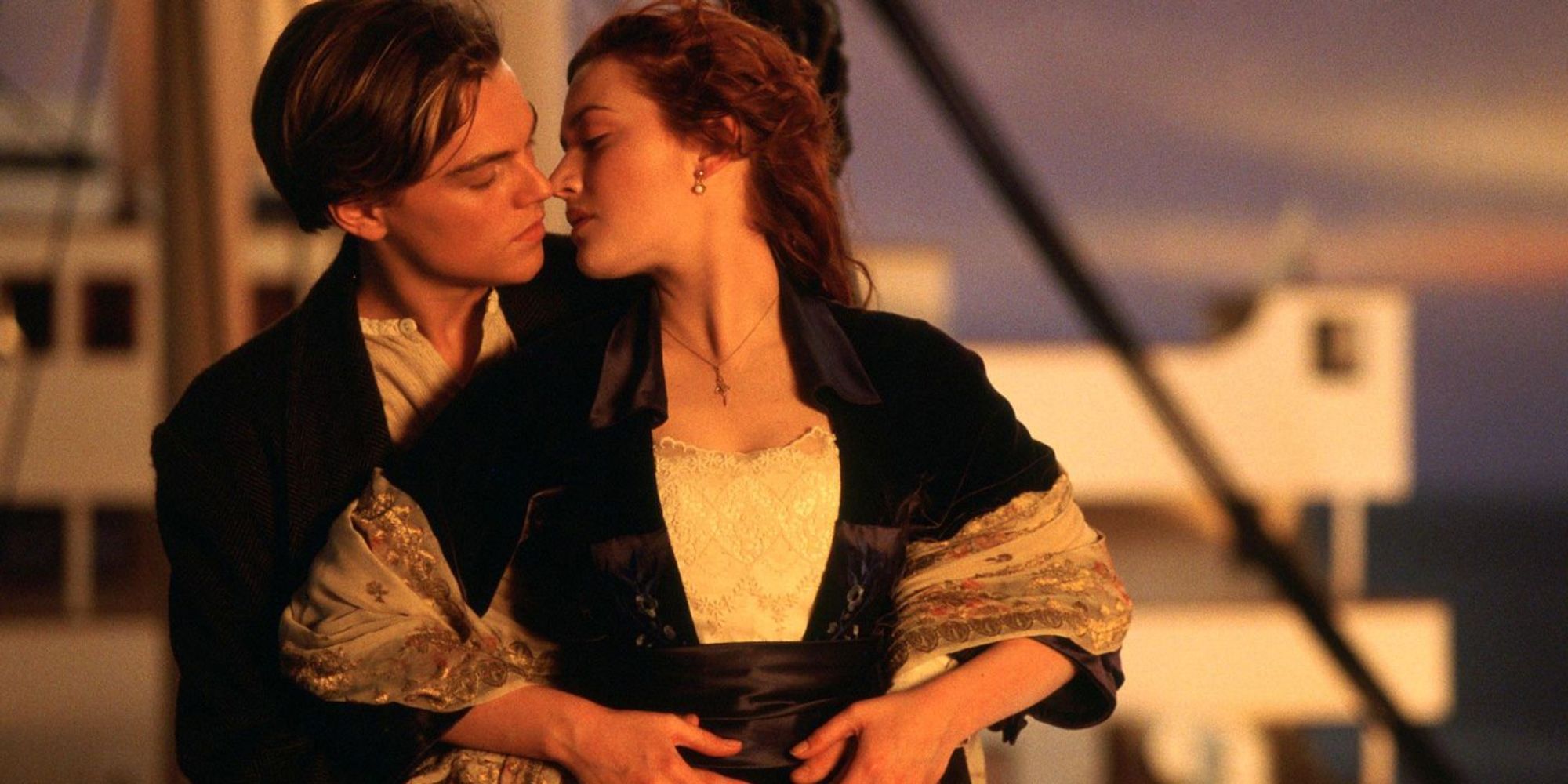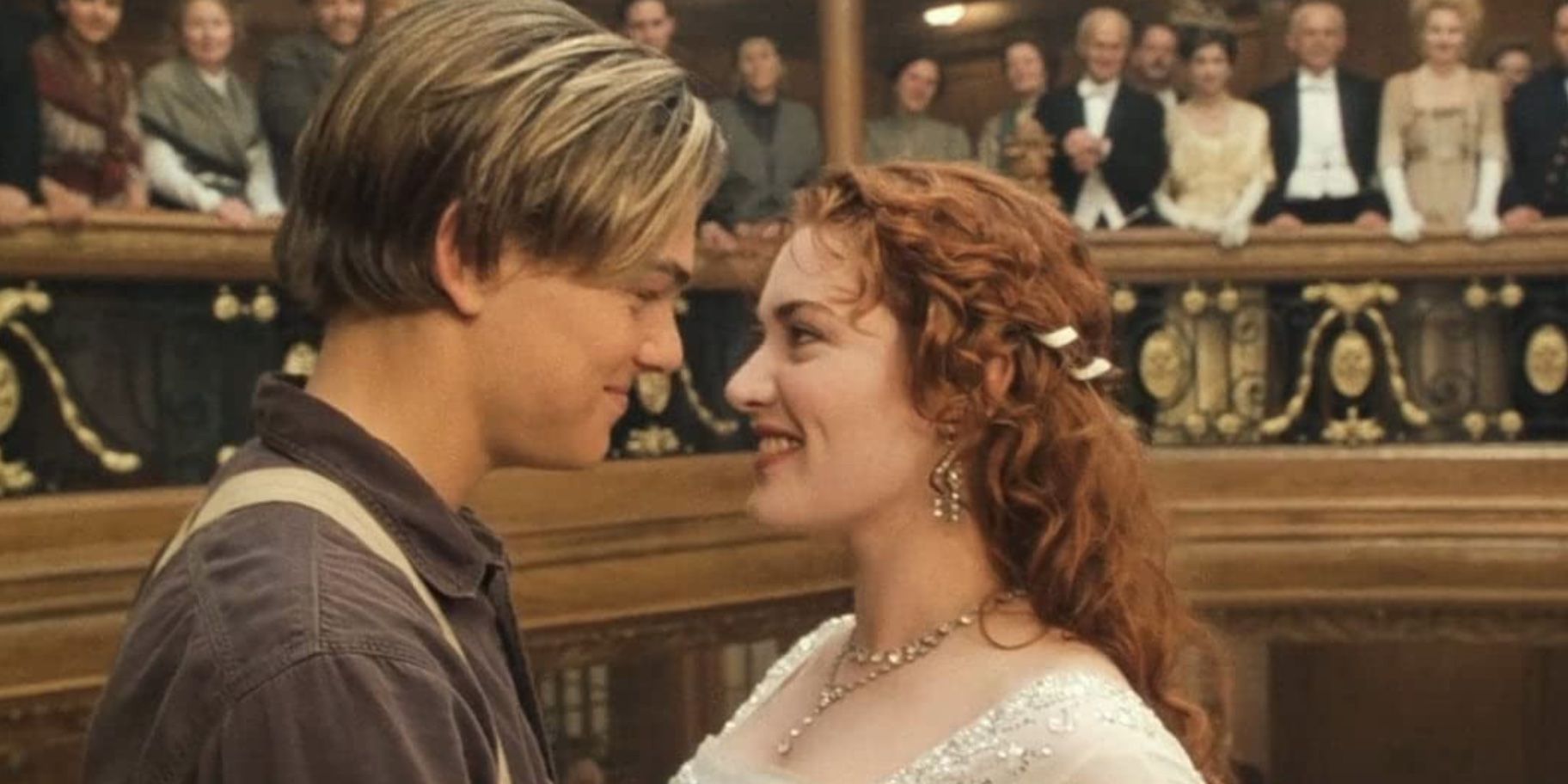
Ever since Titanic debuted in theaters and forever changed the filmmaking landscape, much ado was made about the blockbuster’s tragic ending. Millions of movie-goers wept in their rickety theater seats over Jack Dawson’s untimely death (Leonardo DiCaprio in his career-making role) and still cry on their couches twenty-five years later despite knowing how James Cameron’s historical epic concludes. On the opposite end of the spectrum, an especially zealous quarter of the internet attempted to scientifically debunk The Door: they argued Jack didn’t need to die because both he and Rose (Oscar-winner Kate Winslet’s breakout role) would have fit on the floating wreckage. It’s a debate that produced truly excellent memes and even a viral Mythbusters episode, and it’s certainly harmless fun on the surface. However, as such things go with online discourse, leveraging The Door’s cultural infamy as a legitimate critique of the film demonstrates a fundamental misunderstanding of Titanic’s thesis. Jack Dawson was always destined to die. In fact, he had to, because without his sacrifice, there’s no point to this 195 minute, $200 million budget film.

‘Titanic’ Makes History Feel Real Again
As someone with a lifelong fascination for shipwrecks, Cameron’s initial priority was visiting the real RMS Titanic’s remains: crafting a fictionalized version for the screen was just an excuse to see the mother of all shipwrecks in person. However, after achieving that goal, Cameron was humbled and felt “a great mantle of responsibility” to capture the true extent of the horror behind the legendary disaster. According to the writer-director, “It wasn’t just a story, it wasn’t just a drama; it was a real event that happened to real people who really died.” That devotion manifested through his commitment to impeccably recreating the ship to almost full scale and full detail, with the sinking timeframe calculated out to the second, and it’s the same reason he centered a love story at his movie’s heart: to restore a human face to history.
Of Titanic’s approximately 2,200 passengers, over 1,500 lost their lives due to human hubris and intentional cruelty. The lack of sufficient lifeboats is common knowledge at this point, as are the foreboding declarations of the ship as “unsinkable.” At that time, the Titanic was a catastrophe of untold proportions and entirely preventable with just a few alterations. Those who didn’t pass away during the sinking were left by their fellow passengers to slowly freeze to death in the impossibly cold North Atlantic waters.

As empathetic as any individual strives to be, it’s all too easy to view even the worst historical events through the lens of detached complacency that’s afforded to us by time and distance. This perspective is what Cameron sought to correct, and correct he unflinchingly did. But before the disaster unfolded in the film, the audience needed to care about the characters’ fates. That’s filmmaking 101. One of the most efficient ways to guarantee viewer investment is through conflict, and Titanic’s script went back to basics by establishing a triplicate of drama between its two leads. Rose, an heiress who seemingly wants for nothing, seeks freedom from her abusive circumstances; Jack, a penniless orphan of seemingly no intellectual consequence, longs for adventure. Combining both of their hopeless situations with a star-crossed lovers dynamic was a bonafide way to make film-goers root for them. While Cameron likely never intended to upend tropes or write the wittiest script imaginable, he instead ruthlessly used tropes for all they were worth and then some. Cameron further accentuated this emotional ploy by casting actors who reminded him of Audrey Hepburn and Jimmy Stewart, some of classic Hollywood’s most charismatic and endearing icons.
Not only is the concept of a forbidden romance as old as time immemorial, but so is losing one-half of said couple to tragic circumstances (or both halves – just ask Shakespeare). Jack’s death fulfills that requirement but means so much more than some lazy attempt at provoking tears from film-goers. His sacrificial love for Rose is a microcosmic reflection of Cameron’s entire motif and underscores all that makes Titanic an achingly poignant film.
